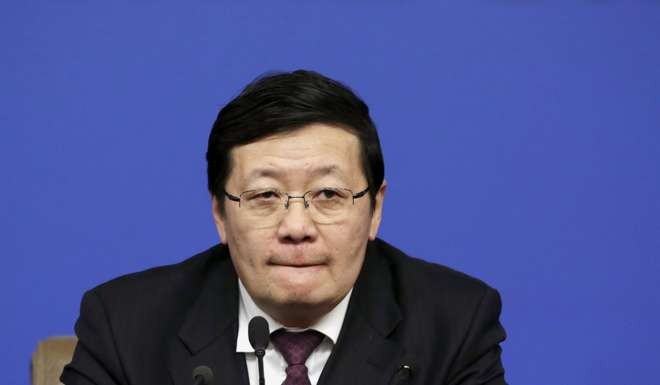
Beijing’s ‘no bailout’ pledge not ultimate solution to local government debt problem, analysts say
State Council rules for managing borrowing risks criticised
The State Council’s plan spelling out what local governments should do if they cannot pay their debts is a stopgap measure, analysts say.
Although it indicates the leadership is focusing on the financial risks of heavy borrowing at the lower level, the problem will persist unless the tax and fiscal sharing arrangements are overhauled, they say.
The plan announced earlier this month lays out for the first time four types of “debt risk” and corresponding emergency responses. Governments at the county level and above must set up a office to oversee the remedies, which include suspending tax credits, selling assets and cutting expenditure.
It’s a policy tool for preparation for a rainy day instead of an emergency reaction to an outbreak of risks
The underlying message of the plan is that Beijing won’t automatically bail out local governments.
“It’s a policy tool for preparation for a rainy day instead of an emergency reaction to an outbreak of risks,” said Zhu Qibing, chief macro economy analyst at the Bank of China International.
According to Beijing’ s own estimates, local governments had 16 trillion yuan (HK$18 trillion) worth of outstanding debt at the end of last year, most of it incurred via so-called local government financing vehicles.
Former finance minister Lou Jiwei struggled for years to discipline borrowing by local governments and to curb debt risks at provincial, municipal and town-level.
But many researchers said Beijing’s attempts to address the issue are merely technical fixes. The underlying problem is that the central government takes away a significant stream of fiscal revenue, leaving local governments insufficient funds to finance local expenses.

“It is increasingly clear that the central and local governments must rework their tax and fiscal sharing arrangements,” said Kuang Xianming, director of the economic research centre at the China Institute for Reform and Development, based in Hainan.
Kuang said the key to reform was determining the expenditure duties of local governments and granting them relevant fiscal power accordingly. But it would take time to work out a detailed list of local government responsibilities.
In many ways, the local government debt problem is a product of the state-led economic model, a centralised administrative system, and a fiscal system adopted in 1994, which channelled more taxes to Beijing and allowed local governments to cover their own ends by “back-door” financing, or debts not on government budget books.
The situation became pronounced after Beijing rolled out a stimulus package in late 2008 and local government debt levels swelled.
Bond issuance, debt swap and other tools are not enough to finance all the local infrastructure projects
The Finance Ministry has tried to open up “front-door” financing, allowing local governments to issue bonds, but the ministry strictly controls bond sizes and supervises how the funds are used. This year’s debt financing quota was set at 1.18 trillion yuan, including 780 billion yuan of municipal bonds and 400 billion yuan of special construction bonds.
To cover existing obligations, the ministry swapped 7.2 trillion yuan of local debt into low-yield bonds, reducing pressure on local governments to pay interest.
“Bond issuance, debt swaps and other tools are not enough to finance all the local infrastructure projects”, not to mention social expenditures, said Louis Kuijs, head of Asia economics at Oxford Economics.
Li Weiguang, a professor of fiscal studies at Tianjin University of Finance and Economics, called for a legal procedure to define the public functions and responsibilities of the government at different levels.
“Without the participation of legislature and ordinary citizens, such government-led reform plans can hardly be called a success.”

